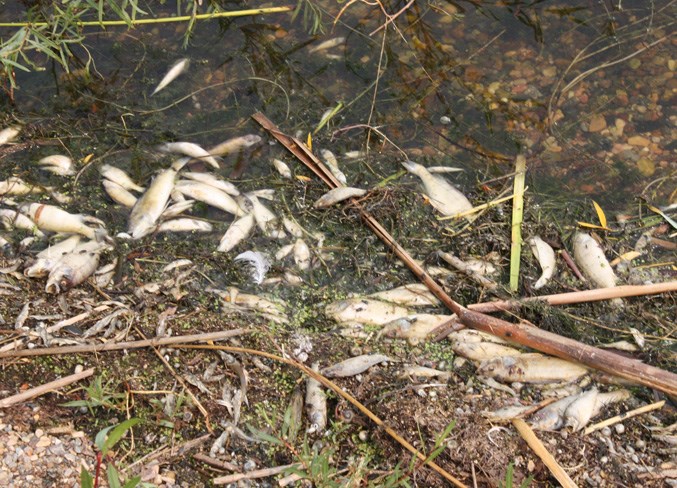Thousands of fish are dead following a summer "fish kill," at Vincent Lake, which has resulted in the lake's population plummeting.
Local residents noticed a higher than usual fish fatality rate, and reached out to the Journal to investigate.
Alberta Environment Parks Fisheries Scientist Dr. Michael Sullivan says there's no reason to be alarmed.
“It happens periodically. Very rarely is there a total fish kill. Almost always some fish survive and repopulate the lake,” he said. “It’s not a wildly unnatural event. Lakes naturally produce nutrients, and St. Vincent Lake is what we call an over productive lake."
An 'over productive lake' is essentially caused as a result of the lake's own environment. Sullivan says St. Vincent classifies as an over productive lake because of its shallowness, its geology, and the rich soil surrounding it.
“You want productive lakes, but these are over productive. So periodically during the summer and winter, you get fish kill at these lakes,” Sullivan explained.
As for any human involvement as a possible factor in the fish dying, Sullivan wouldn't rule it out.
“Agriculture gives us great benefits and economic advantages. One disadvantage, is nutrient runoff.”
Sullivan identified the dead fish to be Yellow Perch, calling them "one of the most common species to see in a eutrophic summer kill."
Eutrophication is when a body of water has excessive nutrients, frequently due to runoff from the nearby land, which causes a dense growth of plant life and death of animal life from lack of oxygen.
"Perch can thrive with lower oxygen levels than many other fish, so often live in these borderline lakes that periodically summer kill. Northern Pike would also typically be found in these productive summer kill lakes. Populations of both species very seldom experience complete summer kills," he said
Sullivan said Perch can repopulate a lake quite quickly, within three to four years.
One local, Bob Odriscoll, spotted the dead fish while on Mallaig beach. He says he's seen this happen before, a few years ago during the winter months.
"I've only seen this over winter. The fish died because of lack of oxygen. The (dead fish) looked the same. Their eyes were popped."



